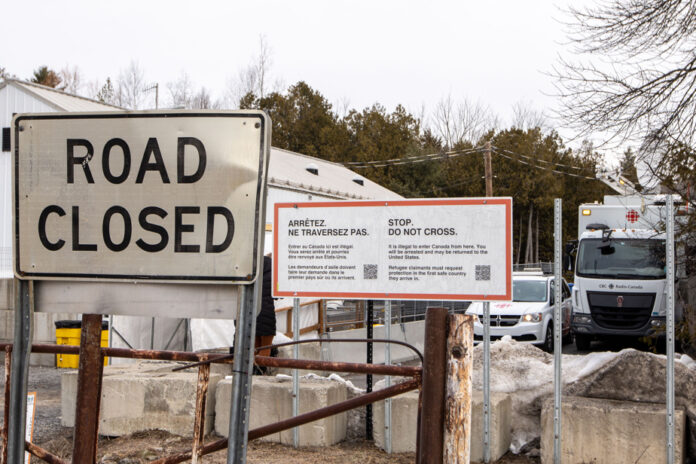The closure of Roxham Road will not prevent migrants from seeking safety, but rather will force them to take even more dangerous routes. This decision is part of an overall policy of tightening North American borders, accentuating the vulnerability of people who would nevertheless be in great need of protection.
Every day and around the world, Médecins Sans Frontières (MSF) and Médecins du Monde (MdM) come to the aid of migrants who are ready to risk their lives to reach safer places, because they are threatened in their country of ‘origin. During their journey, they often face hardships, and many of them are ultimately denied the protection they seek. These trajectories are no accident: they stem directly from policies designed to remove, turn away, and criminalize those deemed unauthorized in a given territory, even those in extremely precarious conditions.
The closure of Roxham Road is based on the unproven assumption that asylum seekers who are denied access to Canada will be protected in the United States. This is the basis of the Safe Third Country Agreement (STCA), which now includes irregular border crossings, such as Roxham Road. However, the American policy towards migrants is getting tougher, and it is not at all certain that those who are prohibited from entering Canadian soil will have their asylum applications processed in the United States.
Indeed, the Biden administration has taken steps to restrict access to its territory through its southern border, including continuing to misuse Title 42 to block and deport migrants and asylum seekers.
From experience, MSF and MdM know that restrictive migration policies exacerbate the health needs of people in transit. In 2022, MSF medical teams in Mexico treated more than 44,000 migrant and refugee people, many of whom were stranded at the US border, suffering from physical or psychological illnesses or trauma, including those resulting from assaults sexual. In El Paso, Texas, MdM offers health services to migrants who manage to cross the border and arrive at the clinic suffering from heat-related illnesses after crossing a desert environment.
MdM and MSF know only too well that people fleeing violence in their country of origin take enormous risks in search of safety. We are witnessing this reality on a global scale, especially in the Mediterranean, where people risk drowning attempting the crossing in the hope of gaining asylum in Europe; and also on the Central American migration routes, along which populations are frequently robbed and assaulted by ambushed gangs.
These lessons show us that closing Roxham Road will not stop people from seeking the safety they no longer find in their home countries. It will only force them to take more dangerous routes. From a humanitarian point of view, extending the scope of the ETPS is absurd.
The number of forcibly displaced people is staggering. In 2022, it surpassed the 100 million mark – the highest number ever. Canada has shown compassion in the past by welcoming refugees from Ukraine, Syria, Afghanistan and many other countries in response to the violence that forced them from their homes. Canada can certainly do better than turn back the few tens of thousands of people who risked everything to reach its southern border.


















